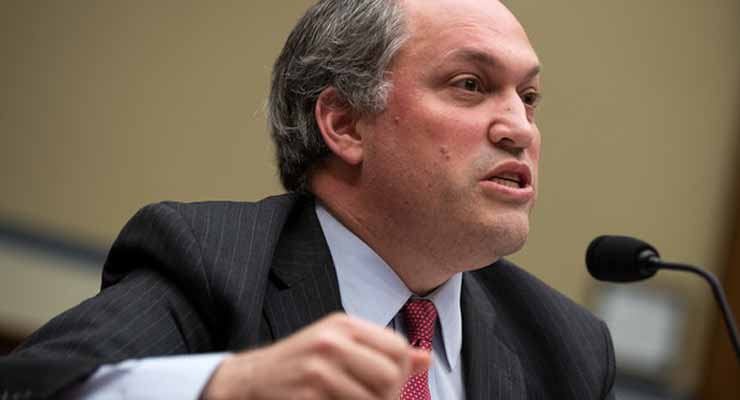 by Michael Rubin,
by Michael Rubin,
Every April, Turkish diplomats and members of the Congressional Turkey Caucus scramble to avert a resolution recognizing as genocide the World War I-era Ottoman massacres of Armenians. Turkish officials oppose any resolution holding Turkey responsible both because the Republic of Turkey was not formally declared until 1923 and because they hold that what happened was not deliberate but rather occurred in the fog of war. Other Turkish historians and politicians hold that the evidence upon which genocide historians rely is exaggerated if not fraudulent.
Lost in the debate about what transpired more than a century ago is what is happening now: Turkey has undertaken and continues to undertake campaigns of ethnic cleansing, and it systematically destroys cemeteries and cultural artifacts in areas where the Turkish army deploys in order to retroactively “Turkify” each region’s history.
Consider Cyprus: Turkish forces invaded Cyprus in 1974 to prevent the island’s annexation by Greece. The nationalist Greek junta that staged a coup in Cyprus and planned the annexation of the island nation, however, collapsed shortly after, and Greece embraced democracy. Whatever reason Turkey had to occupy 1,300 square miles of Cypriot territory evaporated.
But Turkish forces did not leave. They forced ethnic Greeks and Christians from the zone they occupied and, according to the Cypriot Foreign Ministry, “More than 550 Greek Orthodox churches, chapels and monasteries located in towns and villages of the occupied areas, have been pillaged, deliberately vandalized and, in some cases, demolished.” Turkish journalist Uzay Bulut chronicled more, as did Greek journalist Nick Kampouris.
Then, there is Afrin, the district in Syria that Turkey invaded 11 months ago and has been systematically cleansing of both Kurds and Kurdish heritage ever since.
Turkish warplanes reportedly destroyed the tomb of St. Maron and the fourth-century Julianos Church, a UNESCO site. Turkish forces also pulled down a statue of Kawa the blacksmith, a legendary hero of the Kurdish New Year, when they seized the center of Afrin. The deliberate destruction of cultural heritage is a violation for which those giving the order can be prosecuted.
Local civilians have also videotaped systematic destruction of cemeteries in the region. The motivation for this is simple: The Erdogan regime and the Turkish media it controls repeat the line that the Kurds and Christians in Afrin were recent transplants, basically interlopers on Arab land. Cemeteries dating back decades or centuries belie that line. Turkish President Recep Tayyip Erdogan is not alone in the systematic destruction of cemeteries. When Muammar Qadhafi seized power in Libya in 1969, he ordered all Jewish cemeteries destroyed and the bodies of Europeans exhumed. Iraqi dictator Saddam Hussein likewise destroyed the graves of both Kurds and Shiites. For Erdogan to be in such company should embarrass Turks and other NATO members alike.
Within Turkey as well, cultural heritage is being erased. The Ilisu dam, which opened earlier this year, has begun to flood the ancient city of Hasankeyf, which archaeologists believe to have been continually inhabited for 10,000 years. Unfortunately for archaeologists and Kurds, the town has been in Turkish crosshairs since it has been predominantly Kurdish for the last several centuries. Erdogan is playing other games in the region. While he complains about the strain Syria’s refugee crisis causes Turkey, he has also offered Syrian Sunnis citizenship if they settle in traditionally Alevi villages in Hatay or Kurdish towns in southeastern Anatolia. In effect, changing demography and denying and erasing history have become guiding principles of Erdogan’s Turkey.
What does this mean for U.S. policymakers? It is all well and good and important to debate Armenian genocide, but it is equally important for members of the Congressional Turkey Caucus who provide cover for Turkey to understand just for what they are providing cover. The pattern of ongoing ethnic cleansing by Turkey of Kurds and Christians in Syria is clear, and it threatens now to get worse.
What is necessary to do is to recognize Turkey’s actions and hold the Turks perpetrating the destruction of Greek, Kurdish, and Christian heritage accountable. In the case of Cyprus, it is time to recognize that any compromise recognizing a federal role for the Turkish Cypriot government would effectively bless the ethnic cleansing it has committed and continues to commit. With regard to Syria, it is long past time to understand that Erdogan is motivated not by counterterrorism, but rather by racism and religious hatred. As such, it is crucial to recognize that Erdogan is far less a partner than a 21st-century Slobodan Milosevic.
Michael Rubin (@Mrubin1971) is a contributor to the Washington Examiner’s Beltway Confidential blog. He is a resident scholar at the American Enterprise Institute and a former Pentagon official.

